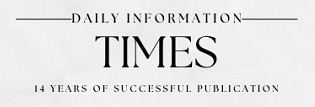ISLAMABAD, April 03 : The Supreme Court on Monday resumed hearing the Pakistan Tehreek-e-Insaf’s (PTI) petition against the Election Commission of Pakistan’s (ECP) decision to postpone polls in Punjab till October 08.
Attorney General for Pakistan (AGP) Mansoor Awan, ECP lawyers Irfan Qadir and Sajeel Swati, PTI counsel Ali Zafar and Pakistan Peoples Party (PPP) counsel Farooq Naek were present in the apex court today.
Secretaries of finance and interior ministries were also present.
Naek came to the rostrum and was asked by Chief Justice of Pakistan (CJP) Umar Ata Bandial if the PPP had concluded its boycott against the court hearings, to which Naek stated that the party had not boycotted the hearing.
Justice Muneeb Akhtar questioned how the party could boycott the hearing and simultaneously attend it. He continued that for the past two days, the media was reporting that political parties had no confidence on the bench.
“How can you present your arguments if you don’t have confidence in us?” he asked, adding that the PPP counsel would only be heard if he withdrew the statement issued by the coalition leaders last week.
He also expressed displeasure at the language of the statement.
Justice Bandial asked Naek if he wanted to become a part of the proceedings, to which Naek said yes and reiterated that the PPP did not boycott the hearing.
The CJP said that the media had reported otherwise, whereas Naek stated that his party had reservations about the maintainability of the PTI petition.
Justice Bandial still maintained that Naek confirmed in writing that he had not boycotted the hearing.
The CJP then asked the AGP about the directions he had received. Awan replied that the incumbent government could not boycott the proceedings.
AGP Awan iterated that the PTI petition was based on the apex court’s March 1 verdict, wherein the court instructed the president to select a date for elections in Punjab and the governor to pick a date for polls in Khyber-Pakhtunkhwa (K-P).
He added that the K-P governor did not select a date until the PTI petition was filed.
The chief justice stated that the petition asked how the electoral watchdog could change the date to October 8 for the elections, adding that the law gave no one the authority to delay poll dates, except for the court.
He remarked that in 1988 the elections were postponed on court orders as the court had issued its verdict based on “ground realities”.
Bandial maintained that the March 1 verdict of the SC had already been executed.
Justice Ijazul Ahsan observed that the existent matter under consideration for the hearing was the ECP’s decision to postpone elections, as the commission was bound to follow court orders.
The attorney general, on the other hand, stated that during the initial suo motu hearings regarding the elections, a nine-member bench oversaw the proceedings. He continued that the court orders came out on February 21 and included dissenting notes from two judges, who had dismissed the case in the first hearing.
Justice Bandial, however, stated that only one judge had dismissed the proceedings as Justice Athar Minallah did not mention rejecting the case in his disagreement note.
The AGP contended that Justice Yahya Afridi had agreed with Justice Minallah and Justice Bandial said that the court “understood Awan’s stance”.
Justice Akhtar stated that on February 27, a nine-member bench asked the CJP for reconstituting the bench. Justice Ahsan added that the reconstituted bench then consisted of five members, which the AGP agreed to.
Justice Bandial clarified that he was not obligated to select the prior members and highlighted that the order the AGP was speaking about was a minority judgement.
The AGP argued that an order of the court was not issued on March 1 to which Justice Bandial asked if Awan believed that a five-member bench was never constituted.
“Harmony among judges is very important for Supreme Court. Judges have a lot of dealings with each other. Judicial proceedings are public, but the consultation of judges is not,” the CJP said.
He continued that the detailed dissenting note did not include the point of reconstitution of the bench, however, the AGP argued that according to the note, the reconstitution of the bench was an administrative measure.
The AGP furthered that according to the note, Justice Ijazul Ahsan and Justice Mazahir Naqvi excused themselves from the hearing. The CJP replied that according to the note, four judges separated themselves from the bench.
“A better way would have been to write that four judges were removed from the bench,” Chief Justice Bandial said, adding that in the decision of the nine-member bench, it was not written anywhere about who was voluntarily resigning.
He continued that there was no provision that a judge could not be removed from the bench, adding that when the court ordered the reconstitution of a bench, it did not mean that other judges were being removed.
Justice Ahsan said that forming a new bench was a “judicial directive and not an administrative one”.
Protests by lawyers and members of the PTI occurred outside the Supreme Court on Monday, ahead of the apex court’s hearing of the PTI petition against the postponement of polls in Punjab. Lawyers were seen with placards and banners as fierce sloganeering ensued in favour of the Constitution and the law.




No comment